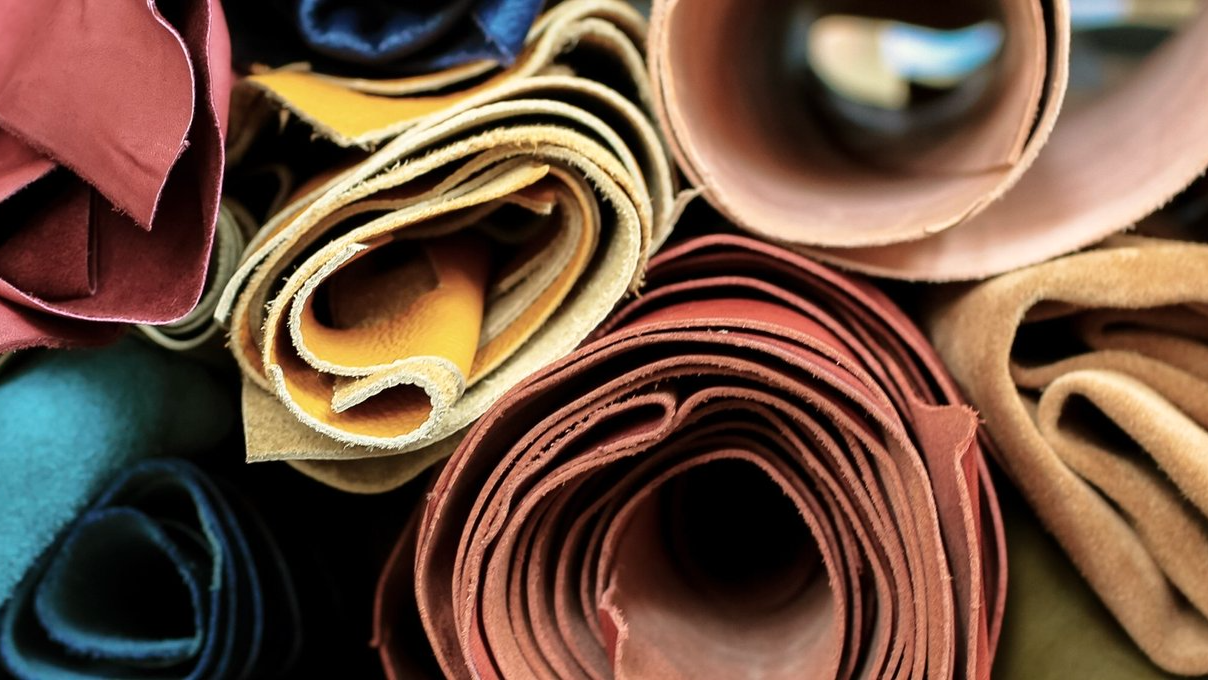
At Stitch & Rivet, we strive to create our products in a sustainable manner by carefully selecting and thoughtfully using Our materials.
The leather we use is a byproduct of the food industry
Using leather, which is a byproduct of the larger food industry, is important to us, so you will primarily see full-grain or top-grain cattle hides in our listings. We strive for the lowest waste possible, and any useable leather after we have cut all our pieces is bundled and sold at a minimal cost or given to local artists, schools, or scouting troops. The leather industry is inherently high-impact, and we make every effort to purchase our leathers from responsible tanneries and distributors in North America and Europe. We also purchase from tannery “seconds” distributors, taking leather that may otherwise become waste and turning it into functional goods. From which tanneries do we source our leathers? We purchase from many places, but the list includes Wickett & Craig in Curwensville, PA; MPG Industria Conciaria in Pisa, Italy; and The Horween Leather Company in Chicago, Il.
The fabrics and webbing we use are a combination of military-grade modernity and heritage quality
We source our canvas from several places, but included in the list is a company that has been producing their canvases for more than a century. The waxes used in our waxed canvas are an environmentally friendly blend of food and pharmaceutical-grade waxes and are non-hazardous. We design our larger bag patterns to waste very little fabric when cutting and use waxed canvas remnants to make our pouches. When possible, we purchase organic cotton fabrics for linings, and when we buy quilting cotton, it comes from local small businesses. The webbing we use to finish the tops of our totes and, in some strapping, was initially made for US military tactical equipment and has excellent tensile strength and rub resistance. The longer a bag lasts, the more sustainable it is as a product.
The hardware we use is high-quality
Using high-quality is an easy decision because it lasts and is less likely to fail than cheaper options. The hardware factory meets and exceeds all requirements regarding material composition, employment standards, and environmental regulations. Our solid brass hardware is low-lead, meaning it is under 90ppm lead content, which meets the requirements set out by California’s Prop 65. Higher quality means it is better for the earth, both in production and in longevity. A product is only as good as its weakest part, so we strive to use quality hardware that lasts.
We use YKK zippers
YKK is considered a global leader in zipper quality, and to us, using a high-quality zipper means more longevity for our products and fewer Stitch & Rivet items end up tossed because a zipper fails. YKK USA zippers are produced in Macon, GA, in a factory that was founded in 1974 and employs 900 people. YKK uses the “Cycle of Goodness®” at the core of their business philosophy. They strive to use their resources responsibly, believing that no one prospers without benefitting others. We can get behind that sort of corporate ethos.
Last but not least, we make things one (or a few!) at a time
Producing goods in small batches is more time-consuming and complicated than using a big factory and slapping a custom label on it. Still, it is one of the best ways to ensure our materials are used responsibly, and we rarely risk over-production. It isn’t a big, sexy, green-washing statement; it is a simple fact - handmade items made from high-quality materials last longer, and the first step in sustainability is buying less and using things for years, not weeks. Sustainability doesn’t mean buying something new because it is marketed as sustainable; it is as simple and beautiful as a years-old, well-made leather or canvas bag with a patina to show its story and yours.


